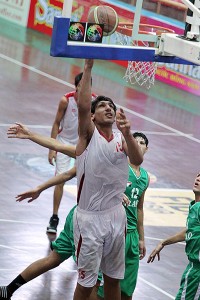Having been a teacher for the last 9 years, I have had plenty of opportunities to witness a multitude of 14 year olds become better people, teammates, athletes, friends and students. It is such an impressionable age for growth and peer influence that those who surround each student are as important of factors to their success as anything else that exists. Young teens – especially boys – are full of wonder and learning potential while trying to find their place in the world.
So when reading the recent ESPN The Magazine article on Satnam Singh Bhamara being not just a basketball prodigy but India’s future “Yao Ming,” I approached the article as someone who teaches boys this age rather than a basketball coach/scout. Not only is Bhamara being hailed as one of the next global superstars, the weight of over a billion potential fans weighing on him, but he now has the added onto this pressure and hype inclusion on the Senior National Team, competing internationally against grown men.
Take a step back now and allow this to sink in: a 14/15 year old playing, rooming, traveling, competing against grown men – and through all of this being expected to act like an adult.
Think about that for a minute. High achievers are often asked to compete at a higher level but being teammates with adults is not the place for the emotional and mental growth of a teenager – especially one still learning the game, footwork, and thought process of what still is not an instinctive game. Consider even adults’ sense of humor, interest in flirting, grabbing drinks after a game or even asking for their hotel room to be left alone for a period of time. Teenagers are still fragile, still growing, still developing their sense of self, and still need people to act goofy around. Teenagers really have little to no capacity, no matter how many precautions you surround them with, to be expected to act and respond as an adult when others are relying on their actions.
Now for all you grown ups reading this blog (yes – a lot of us are now adults) think about doing your jobs with all of your responsibilities and expectations while relying on a 14 year old. Teaching boys that age has certainly been an amazing experience during my career, but having to rely on someone that age for joint success is more than just overwhelming for everyone involved; it is also emotionally unfair for adults who have little or no experience in working with children that age.
Some food for thought as we start 2012 and how personal/academic growth is just as important as basketball growth.


